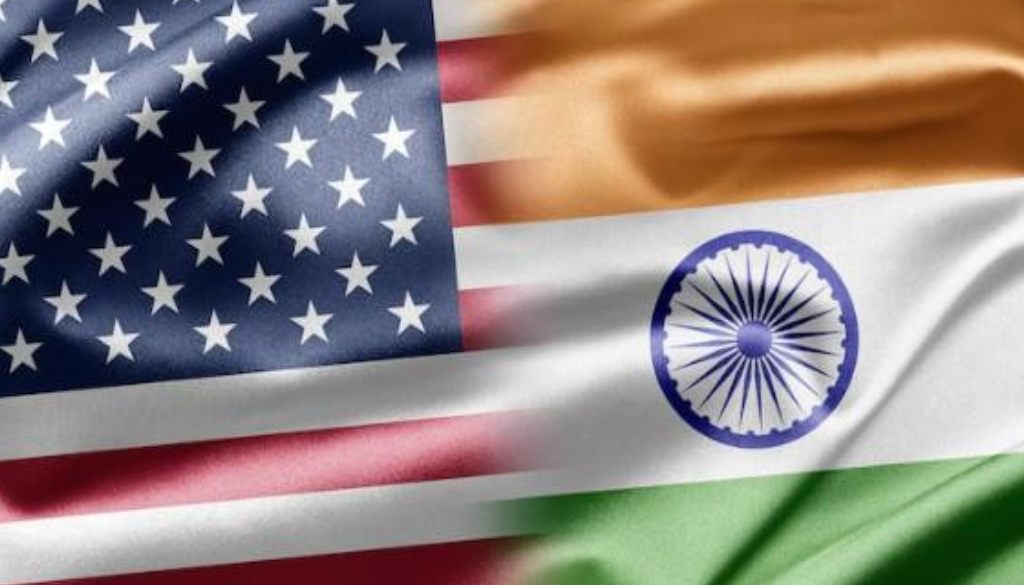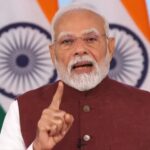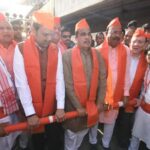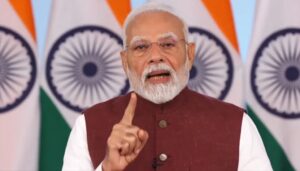
India, US Set to Begin Trade Talks as Tariffs Loom
Mumbai, 2nd April 2025: One day before the United States’ reciprocal tariffs take effect on April 2, India has accepted the Terms of Reference (ToR) for a Bilateral Trade Agreement (BTA) with the US, following direct intervention from the Prime Minister’s Office (PMO).
The ToR lays out the foundation for the trade agreement and typically requires approval from the country’s highest political leadership before negotiations can commence. “The PMO is prioritizing the swift conclusion of the deal,” a senior government official stated.
As of Saturday, when US negotiators departed after four days of discussions, the ToR had not been finalized. However, both nations are now prepared to enter formal negotiations, where India is expected to ease tariffs on American goods in return for trade concessions from the US, the official added.
During a press briefing at the White House, US President Donald Trump hinted at upcoming tariff reductions from India, suggesting that there could be some relief amid Washington’s broad tariff measures. “I’ve been informed that India is set to lower its tariffs significantly. Many nations are making similar moves,” Trump remarked.
The Indian Commerce and Industry Ministry had not issued an official response by late evening.
Meanwhile, the United States Trade Representative (USTR) intensified scrutiny on India and other trade partners by highlighting a range of issues in its annual ‘Foreign Trade Barriers’ report, which evaluates 29 key trading nations. In India’s case, the concerns span from internet restrictions and food safety regulations to limitations on imports of agricultural products and genetically modified (GM) foods.
Ajay Srivastava, a former Indian trade official and the head of the think tank Global Trade Research Initiative (GTRI), cautioned that while Washington is urging policy changes to serve American interests, India must carefully assess these demands based on its national priorities, developmental objectives, and cultural context.
“Several of the proposed modifications—concerning agriculture, digital governance, and public health—pose significant threats to India’s ability to safeguard small farmers, ensure food safety, uphold cultural values, and secure its digital infrastructure. India is not against reforms or global collaboration, but any negotiations must be balanced, mutually beneficial, and respectful of sovereignty,” Srivastava explained.
The USTR report outlined various trade barriers in India, including disruptions caused by localized internet shutdowns and strict dairy industry regulations that require food-producing animals to be raised on a diet free from blood meal and internal organs.
“India mandates that dairy products intended for human consumption originate from animals that have not been fed internal organs, blood meal, or tissues from ruminants or pigs. Exporting nations must certify compliance with these conditions, despite no clear animal or human health justification,” the report noted.
Further, the report highlighted potential US demands in upcoming trade talks, particularly regarding India’s regulations on importing milk, pork, and fish. It criticized India’s requirement for GM-free certification on agricultural imports, arguing that the policy lacks scientific or risk-based reasoning.
The report also suggested that Washington sees India as a growing competitor, akin to China, which may explain its decision to place India on its ‘Priority Watch List’ due to unresolved concerns over intellectual property (IP) rights. Key criticisms include the absence of dedicated laws for trade secret protection and prolonged patent approval timelines.
The US has also raised concerns about India’s price caps on medical devices like coronary stents and knee implants, arguing that these restrictions do not align with inflation rates and fail to consider production costs or incentives for innovation. Washington claims that such policies could deter American medical companies from entering the Indian market.
Additionally, the report reiterated longstanding US objections to India’s agricultural subsidies, which Washington believes distort global markets. However, Indian officials have countered that the US government support for its farmers far exceeds India’s assistance levels.
India’s restrictions on pulse imports were also criticized for being unpredictable and non-transparent. The report further pointed out that India’s approval process for boric acid imports seemingly favors domestic producers over foreign suppliers.
On biotechnology, ongoing tensions persist between the two nations. Washington has faulted India’s sluggish and opaque regulatory process for genetically engineered (GE) products, arguing that it is politically influenced rather than based on scientific evidence.
“The Food Safety and Standards Act of 2006 includes provisions for regulating genetically modified food products. However, as of December 31, 2024, the Food Safety and Standards Authority of India (FSSAI) was still formulating its regulations. India’s approval process for biotech products is slow, unclear, and subject to political influences, failing to align with science-based approaches used by other countries,” the report asserted.
The US has also criticized India’s data localization mandates, which require financial service providers to store Indian users’ data within the country.
“In 2018, the Reserve Bank of India (RBI) implemented a rule mandating that all payment-related data of Indian citizens be stored exclusively on local servers. This regulation was introduced without prior consultation with industry stakeholders. A year later, RBI expanded this rule to include all banks operating in India. Foreign companies argue that this policy hinders fraud detection and compromises the security of their global networks,” the report stated.
Washington has further urged India to liberalize its satellite communication sector. “The US continues to advocate for an ‘open skies’ policy in India’s satellite industry, which would allow consumers to choose satellite providers based on their needs and grant foreign firms better market access,” the report noted. Interestingly, Starlink, the satellite internet venture backed by billionaire Elon Musk, a close ally of President Trump, could benefit from such reforms.
Concerns regarding India’s patent landscape also surfaced in the report, including issues related to copyright enforcement, online piracy, and statutory licensing. The document criticized long delays in trademark opposition cases, excessive compliance burdens on patent applicants, and the absence of clear legal protections for trade secrets.
India’s high tariff rates on numerous imported products—ranging from vegetable oils, apples, and maize to automobiles, motorcycles, rubber, coffee, alcoholic beverages, and flowers—were also a point of contention.
The report argued that India’s ability to adjust tariff rates at short notice creates uncertainty for US exporters.
“The Indian government has utilized its flexibility to modify tariff rates frequently, imposing increases on approximately 70 product categories in the 2019/2020 budget and an additional 31 categories in 2020/2021, affecting several key US exports,” the report concluded.

















